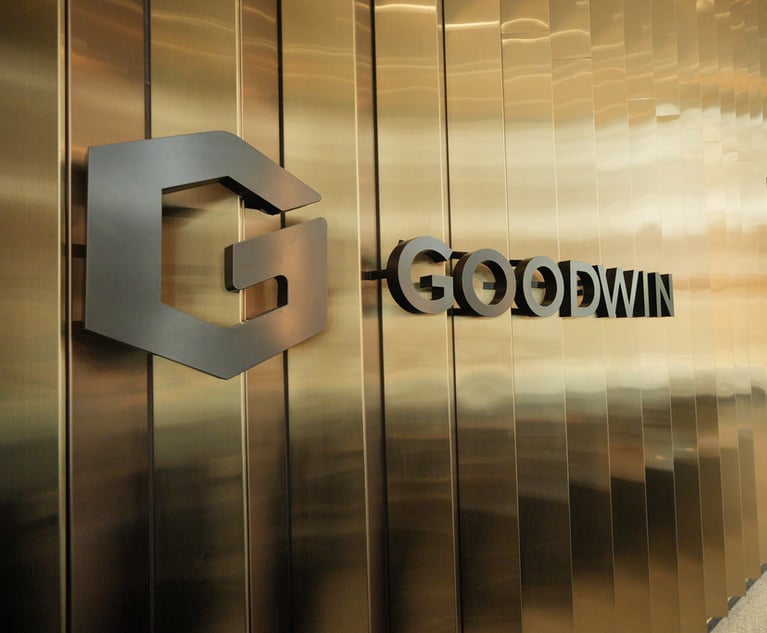Allens sees partnership shrink by more than a quarter in five years since Linklaters alliance
Partner count at Australian firm falls by almost 50 since 2012 alliance deal
December 08, 2017 at 07:00 AM
4 minute read

Linklaters' Australian ally Allens has shrunk its partnership by more than a quarter in the five years since forging an alliance with the UK firm in 2012, it has emerged.
The Australian firm had 180 partners and an office network across Asia when it went into its exclusive alliance deal with Linklaters in 2012. Five years later, its partnership has shrunk by 27% to 131 partners, while the firm also has shut down most of its Asia network to instead rely on the magic circle firm's offering in the region.
The firm has closed offices in Beijing, Shanghai, Hong Kong, Singapore and Cambodia, as well as terminating an alliance in Thailand.
The profit-sharing joint venture between the two firms in Indonesia has been absorbed by Linklaters, and while the official line is that the energy joint venture they established in 2012 is still in operation, former partners say it has been wound up, and Allens concedes that there is no longer a need for a regional energy JV "as the energy market is now genuinely global".
One former Allens partner said: "If you look back at when it started out, I don't think the Allens partnership would have expected that five years later they would be an almost entirely domestic firm."
Many of the Asia exits happened within two years of the alliance being signed; however, the departures have continued in recent years.
Some Allens Asia partners, including Rio Tinto relationship partner and energy JV head Nic Tole, have returned to Australia. Others have left for international firms, including oil and gas partners Darren Murphy and disputes partner Matthew Skinner, who joined Jones Day in Singapore in 2012; Gavin MacLaren, who joined Freshfields Bruckhaus Deringer in 2012; and Anthony Patten, who joined Shearman & Sterling in 2014.
Others have moved over to Linklaters, including former corporate head Niranjan Arasaratnam, who joined the magic circle firm in Singapore earlier this year.
One former partner said the alliance gave Allens a convenient way to wind down its struggling Asian network and focus instead on its domestic operations.
"It was a really convenient way for Allens to exit Asia, which had been incredibly unprofitable and a drain on the Australian partnership," they said.
Allens managing partner Richard Spurio added: "There was a point where we had a broader Asian footprint, but we decided that it was not really right for us; Indonesia is a good example of where it made more sense for that team to sit within Linklaters' network."
The firm does not reveal its financial results, but former partners and management rivals have said that Allens' profitability has increased following its withdrawal from Asia.
Allens pointed to research carried out by The Australian Financial Review, which found that other independent and international firms in Australia had also shrunk their partnerships during the past five years in response to market demands.
Linklaters struck its alliance deal with Allens in 2012 and South African firm Webber Wentzel in 2013. The referral arrangements see Allens and Webbers collaborate on deals and use Linklaters' branding, but do not include any profit or revenue sharing.
The three firms have used the milestones of their five-year anniversaries to review the alliances.
Linklaters managing partner Gideon Moore said: "Five years is a good time to reflect and think [about] what has gone well and less well."
Moore said that following the review he wants to increase the number of secondments between the firms and further develop the sharing of ideas around areas like training and career development.
This content has been archived. It is available through our partners, LexisNexis® and Bloomberg Law.
To view this content, please continue to their sites.
Not a Lexis Subscriber?
Subscribe Now
Not a Bloomberg Law Subscriber?
Subscribe Now
NOT FOR REPRINT
© 2025 ALM Global, LLC, All Rights Reserved. Request academic re-use from www.copyright.com. All other uses, submit a request to [email protected]. For more information visit Asset & Logo Licensing.
You Might Like
View All
Hengeler, Noerr, Freshfields Steer Multi-Million Euro Deals for XXXLutz, Huf Group & More
3 minute read
Goodwin Enlisted for $1.15 Billion GSK Acquisition of US Biopharma Business

Freshfields Leads European M&A Rankings Again in 2024, as U.S. Firms Gain Market Share
5 minute read
Trending Stories
- 1Courts Grapple With The Corporate Transparency Act
- 2FTC Chair Lina Khan Sues John Deere Over 'Right to Repair,' Infuriates Successor
- 3‘Facebook’s Descent Into Toxic Masculinity’ Prompts Stanford Professor to Drop Meta as Client
- 4Pa. Superior Court: Sorority's Interview Notes Not Shielded From Discovery in Lawsuit Over Student's Death
- 5Kraken’s Chief Legal Officer Exits, Eyes Role in Trump Administration
Who Got The Work
J. Brugh Lower of Gibbons has entered an appearance for industrial equipment supplier Devco Corporation in a pending trademark infringement lawsuit. The suit, accusing the defendant of selling knock-off Graco products, was filed Dec. 18 in New Jersey District Court by Rivkin Radler on behalf of Graco Inc. and Graco Minnesota. The case, assigned to U.S. District Judge Zahid N. Quraishi, is 3:24-cv-11294, Graco Inc. et al v. Devco Corporation.
Who Got The Work
Rebecca Maller-Stein and Kent A. Yalowitz of Arnold & Porter Kaye Scholer have entered their appearances for Hanaco Venture Capital and its executives, Lior Prosor and David Frankel, in a pending securities lawsuit. The action, filed on Dec. 24 in New York Southern District Court by Zell, Aron & Co. on behalf of Goldeneye Advisors, accuses the defendants of negligently and fraudulently managing the plaintiff's $1 million investment. The case, assigned to U.S. District Judge Vernon S. Broderick, is 1:24-cv-09918, Goldeneye Advisors, LLC v. Hanaco Venture Capital, Ltd. et al.
Who Got The Work
Attorneys from A&O Shearman has stepped in as defense counsel for Toronto-Dominion Bank and other defendants in a pending securities class action. The suit, filed Dec. 11 in New York Southern District Court by Bleichmar Fonti & Auld, accuses the defendants of concealing the bank's 'pervasive' deficiencies in regards to its compliance with the Bank Secrecy Act and the quality of its anti-money laundering controls. The case, assigned to U.S. District Judge Arun Subramanian, is 1:24-cv-09445, Gonzalez v. The Toronto-Dominion Bank et al.
Who Got The Work
Crown Castle International, a Pennsylvania company providing shared communications infrastructure, has turned to Luke D. Wolf of Gordon Rees Scully Mansukhani to fend off a pending breach-of-contract lawsuit. The court action, filed Nov. 25 in Michigan Eastern District Court by Hooper Hathaway PC on behalf of The Town Residences LLC, accuses Crown Castle of failing to transfer approximately $30,000 in utility payments from T-Mobile in breach of a roof-top lease and assignment agreement. The case, assigned to U.S. District Judge Susan K. Declercq, is 2:24-cv-13131, The Town Residences LLC v. T-Mobile US, Inc. et al.
Who Got The Work
Wilfred P. Coronato and Daniel M. Schwartz of McCarter & English have stepped in as defense counsel to Electrolux Home Products Inc. in a pending product liability lawsuit. The court action, filed Nov. 26 in New York Eastern District Court by Poulos Lopiccolo PC and Nagel Rice LLP on behalf of David Stern, alleges that the defendant's refrigerators’ drawers and shelving repeatedly break and fall apart within months after purchase. The case, assigned to U.S. District Judge Joan M. Azrack, is 2:24-cv-08204, Stern v. Electrolux Home Products, Inc.
Featured Firms
Law Offices of Gary Martin Hays & Associates, P.C.
(470) 294-1674
Law Offices of Mark E. Salomone
(857) 444-6468
Smith & Hassler
(713) 739-1250








